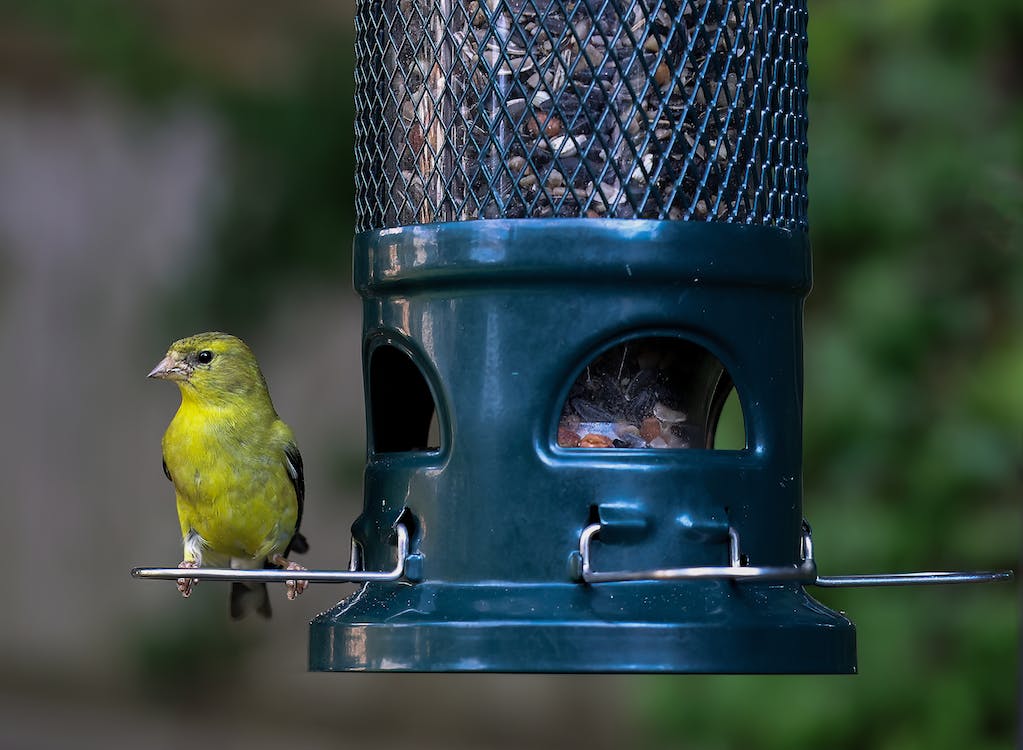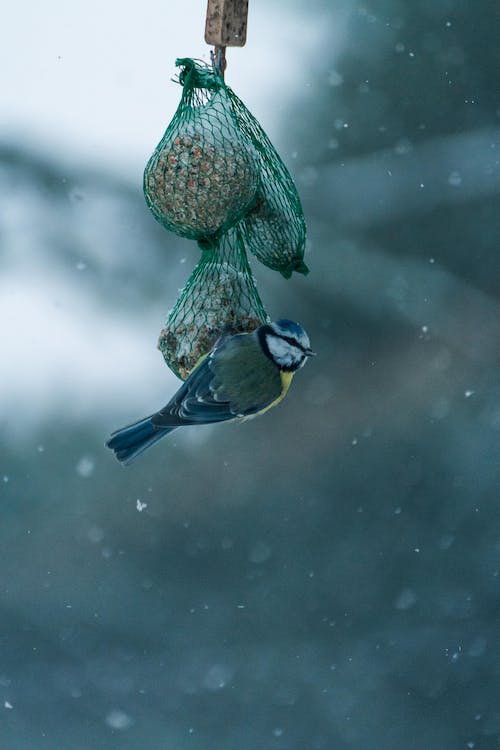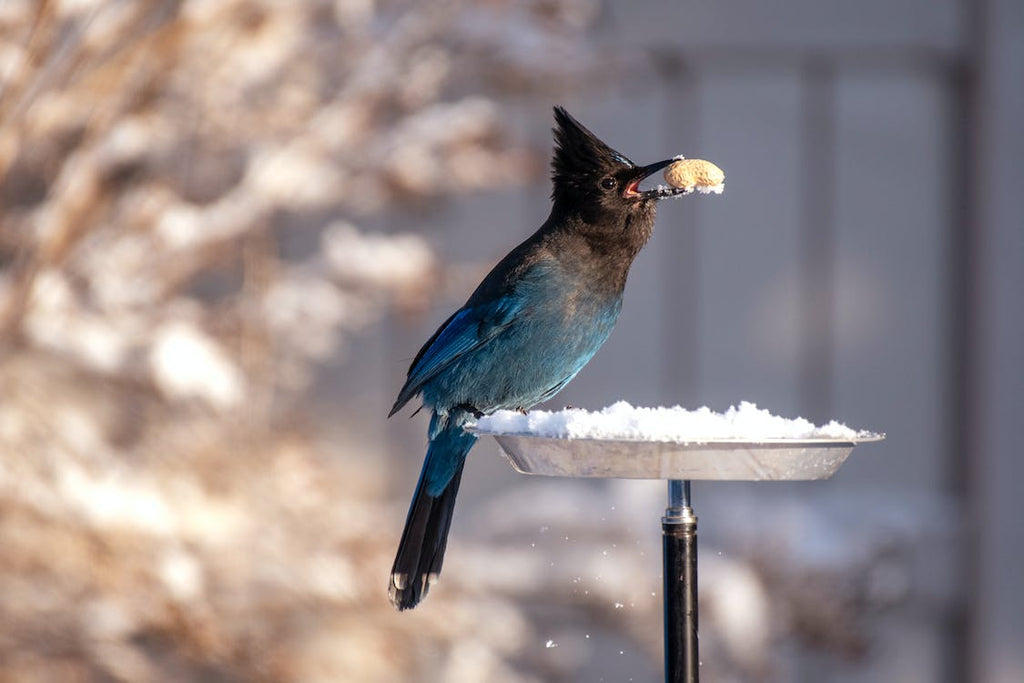
Birds are wonderful garden visitors, adding so much life and personality to our outdoor spaces. Feeding birds is a wonderful way to support wildlife in your neighborhood while enhancing the beauty of your yard. Feeding birds is pretty straightforward, but there are a few things to know about feeding birds in the winter. If we follow some basic guidelines and “dos and don’ts” we’ll get the best possible results for both our gardens and our feathered friends.
What to Feed Birds
Let’s start by talking about the best foods to offer our birds. Not surprisingly, different species of bird prefer different foods. For example, sunflowers are wonderful for cardinals and blue jays, but they’re difficult for many smaller species to eat. While specialty bird feeds exists if you’re trying to attract a particular species, the best bet is a mixed birdseed containing a variety of ingredients like sunflower seeds, amaranth, barley seeds, millet, and corn. This will support most species of bird that you might find in your garden, giving them a variety of nutritional options to support their health all winter long.

What NOT to Feed Birds
Just as important as providing the right foods is avoiding the wrong ones. Towards that end, here’s a list of foods to avoid. To repeat, we should not feed wild birds these foods, for any reason:
- Nochocolate
- Notable scraps
- Norotten food
- Nospoiled/molded birdseed
- Nomeat
- Nobread
- Nomilk or milk products
- Nosalt or salted seeds
All of these foods can be dangerous to birds, and should not be added to your bird feeder. Please stick with healthy foods that are appropriate for the wildlife around us. By sticking with proper birdseed, we can ensure that our birds have the food they need throughout the winter.

Water for Birds in Winter
Now that we’ve talked about food, let’s talk about water. Birds need water too, and it can be difficult for them to find in winter particularly where things freeze. By provide a source of fresh, clean, liquid water, we can offer even more support for our back yard visitors. Water in a black container will often resist freezing, as black absorbs the heat and energy from the sun and helps the water stay warmer for longer. However, in really cold weather changing the water regularly or providing a source of running water like a dripping spigot may work a little better.
Tips and Tricks for Feeding Birds in Winter
Whatever you decide to feed our backyard birds this winter, we need to make sure to do so consistently. Birds are creatures of habit, and when they become reliant on a food source changes can stress them out. It’s OK to miss a day occasionally, but we should try to have food in our feeders more often than not. And speaking of the bird feeder—please keep it clean! Hot soapy water is the best cleaning medium, followed by a through air drying before returning the bird feeder to service. In warm or humid weather, soaking the feeder in a 50/50 mix of water and vinegar before drying can eliminate further harmful microorganisms. A clean feeder and food that’s been changed out regularly are good steps towards keeping things healthy for our birds and ourselves.

Feeding birds in the winter is a wonderful way to stay engaged and connected with nature all year long. By following a few simple guidelines and avoiding a few potential pitfalls, we can keep our feathered friends healthy and happy while ensure that they return to our garden spaces.

Leave a comment